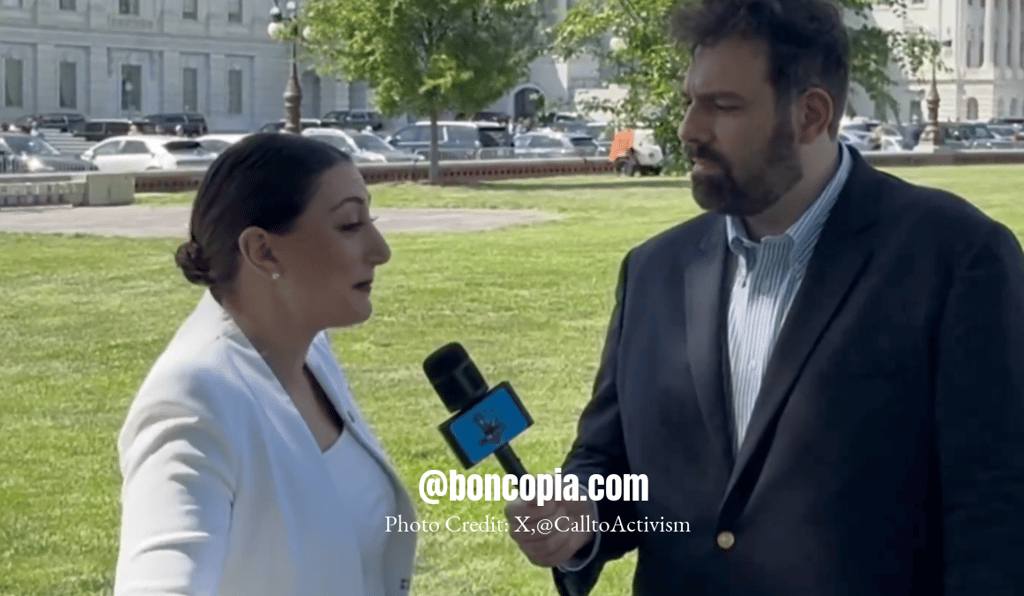The Battle Over DOGE: Congresswoman Sara Jacobs Takes a Stand Against Elon Musk's Government Efficiency Initiative
5/11/20253 min read


The Battle Over DOGE: Congresswoman Sara Jacobs Takes a Stand Against Elon Musk's Government Efficiency Initiative
In a dramatic turn of events, Congresswoman Sara Jacobs has introduced the "Delete DOGE Act," aiming to defund and dismantle Elon Musk's Department of Government Efficiency (DOGE). This bold move has sparked a fierce debate about the balance between government efficiency and public welfare, drawing national attention to the potential risks of unchecked executive power and corporate influence in governance. Let's dive into the details and explore the implications of this political showdown.
The Rise of DOGE: A Controversial Initiative
DOGE, established by an executive order on January 20, 2025, under the second Trump administration, was tasked with slashing federal spending and shrinking the size of the government. Led by Elon Musk and his allies, the initiative promised to root out waste and fraud, but it quickly became a lightning rod for controversy. Critics argue that DOGE's aggressive cuts have jeopardized critical services, including medical research, veterans' care, and public safety.
One particularly alarming example is the initial firing of specialists responsible for nuclear bomb safety and disease prevention, only to be rehired after public outcry. This pattern of "move fast, break things" has raised concerns about the long-term impact on American lives and the integrity of democratic processes. As reported by Newsweek, DOGE's actions have been described as circumventing constitutional norms, prioritizing efficiency over the welfare of citizens.
Congresswoman Jacobs' Bold Move
Enter Congresswoman Sara Jacobs, a vocal advocate for reproductive rights, data privacy, and now, government accountability. On April 2, 2025, Jacobs introduced the Delete DOGE Act, a bill designed to prohibit the use of federal funds for DOGE and rescind existing allocations. Her motivation? To protect essential services from what she sees as reckless cuts that favor billionaire tax breaks over public welfare.
In a recent interview, Jacobs didn't mince words. She highlighted the dangers of DOGE's approach, stating, "What DOGE is doing is really harmful to people—not only those whose jobs were lost but also those who rely on the services those government workers provide." She pointed to specific examples, such as the accidental firing of experts tracking Ebola and bird flu, and those responsible for monitoring the nuclear stockpile. "These are really important things," she emphasized, "and he's just kind of willy-nilly deciding what to get rid of."
The Broader Implications
The introduction of the Delete DOGE Act is more than just a policy dispute; it's a clash of ideologies. On one side, proponents of DOGE argue that government efficiency is crucial to curb wasteful spending and reduce the national debt. On the other hand, critics like Jacobs contend that such efficiency cannot come at the expense of life-saving services and democratic principles.
This debate touches on several key issues:
Government Accountability: Should executive initiatives like DOGE be subject to congressional oversight, or can they operate independently?
Corporate Influence: What role should billionaires like Elon Musk play in shaping government policy?
Public Welfare vs. Efficiency: Is it possible to achieve both, or must we choose one over the other?
Jacobs' stance aligns with her broader commitment to defending democracy and ensuring that government actions prioritize the needs of ordinary Americans. As a national voice on critical issues, her move against DOGE underscores the tension between innovation and tradition in governance.
Public Reaction and Political Fallout
The reaction to the Delete DOGE Act has been polarized. Supporters praise Jacobs for standing up to what they see as an overreach by Musk and the Trump administration. Critics, however, argue that defunding DOGE could hinder efforts to address fiscal irresponsibility. Social media has been abuzz with hashtags like #DeleteDOGE and #SaveDOGE, reflecting the divide.
Political analysts suggest that the bill's success hinges on broader support within Congress and the public. With the 2026 midterms on the horizon, this issue could become a defining moment for Jacobs and a litmus test for voter priorities. Will Americans prioritize efficiency and cost-cutting, or will they demand protection for essential services?
What This Means for the Future
The battle over DOGE is emblematic of larger questions about the role of government in the 21st century. As technology and wealth concentrate in fewer hands, how do we ensure that public policy serves the many, not the few? Jacobs' Delete DOGE Act challenges us to reconsider the balance between innovation and regulation, efficiency and equity.
For now, the outcome remains uncertain. Will the Delete DOGE Act pass, or will DOGE continue its mission unimpeded? Regardless, this episode highlights the ongoing struggle to define the soul of American governance in an era of rapid change.
Thought Questions
Should government efficiency initiatives like DOGE be subject to the same congressional oversight as traditional agencies?
How much influence should private individuals, like Elon Musk, have over public policy?
Can we achieve both government efficiency and public welfare, or must we prioritize one over the other?
What role should public opinion play in shaping policies like the Delete DOGE Act?
This blog post, tailored for Boncopia.com
hello@boncopia.com
+13286036419
© 2025. All rights reserved.